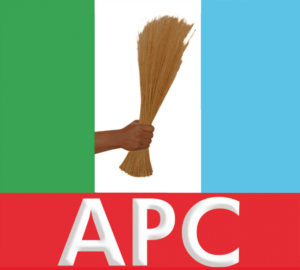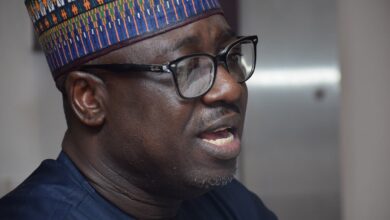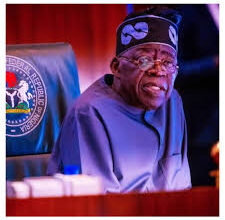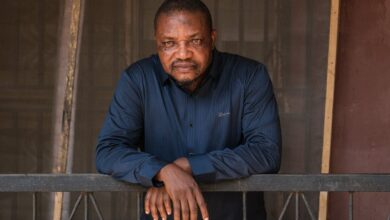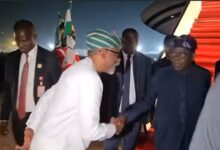US, Russia, Qatar, Saudi Arabia, others still heavily subsidising fuel prices – Report
*...but World Bank wants Nigeria to sustain removal *They want Nigeria to collapse due to extreme hardship - Nigerians *As Tinubu insists, justifies fuel subsidy removal saves money for country *Poverty rate in Qatar at 0.4%, Saudi Arabia 13.56%, Oman 10.1%, while in Nigeria 63% multidimensionally poor *How Buhari handled IMF/WB attempted control of Nigerian economy in his days - Analysts
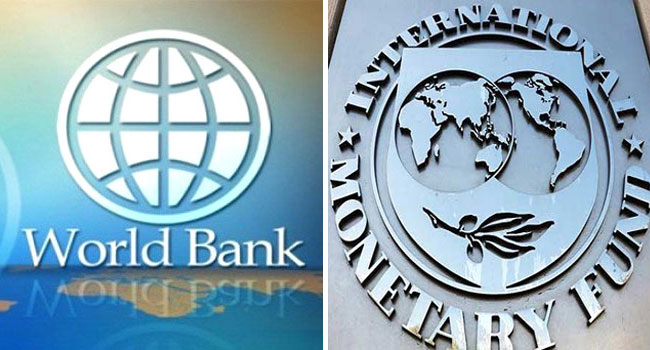
By KEMI KASUMU
The DEFENDER recalls that under President Muhammadu Buhari, the International Monetary Fund (IMF), at a meeting in the United States of America attended by Nigeria’s Minister of Finance Zaynab Ahmad, on invitation, had been advised to remove fuel subsidy and devalue the Naira but, on his behalf, the Minister rejected the IMF’s advice.
The World Bank recently urged Nigeria to maintain its policy on removal of fuel subsidies and not reverse its current reforms.

It argues that the reforms are necessary for the nation’s long-term stability.
One of the major reforms introduced by President Bola Tinubu’s administration is the removal of fuel subsidies on May 29, 2023.
This has astronomically pushed up the price of petrol per litre to around N1,030.
Despite such calls for non-return of fuel subsidies, reported media checks show that many countries of the world, including more developed ones than Nigeria are still spending heavily on fuel subsidies.
Data by the International Monetary Fund gives an insight into this issue.
For instance, subsidies per capita as published by IMF in September 2023 shows that in Qatar, it stood at $3897, in Saudi Arabia, the amount stood at $4817, in Kuwait, the amount stood at $5058 per capita, while that of Korea stood at $1178.
In Luxembourg, the amount stood at $4389, in the United States, the fuel subsidy per capita stood at $1535, Russia was $1419, Singapore stood at $2167, and Oman spent $1994 per capita on fuel subsidies.
The poverty rate in Qatar was put at 0.4% while in Saudi Arabia, the poverty rate stood at 13.56%. the poverty rate for Oman was put at 10.1% by the published data.
In contrast, a report by the National Bureau of Statistics says 63% of persons in Nigeria are multidimensionally poor.
Like Nigeria, Qatar is also one of the world’s leading producers of crude oil at an approximate crude oil production of 1.76 million per day, that of Saudi Arabia is estimated at 9.5 million barrels per day.
Experts and political commentators have argued that the World Bank’s position is not in tandem with the realities in Nigeria.
Former Kaduna Senator, Shehu Sani had alleged that “the World Bank wants the hardship to extend to the next fifteen years before we can reach the promise land”.
“I don’t know of how many people will be remaining at that time to enjoy the fruits of the WB in its promise land. The question is how many African countries did the World Bank take to the promise land?” he posted on X.
The Nigeria Labour Congress at different times have argued that hikes in fuel prices will cause more suffering for Nigerians.
Recently, the House of Representatives called on the government to review its policies in a bid to ensure that Nigerians do not suffer too much hardship.
President Tinubu had justified the removal on the need to save money for the country and also block corruption loopholes in the country’s petrol sector.
The DEFENDER recalls that under President Muhammadu Buhari, the International Monetary Fund (IMF), at a meeting in the United States of America attended by Nigeria’s Minister of Finance Zaynab Ahmad, on invitation, had been advised to remove fuel subsidy and devalue the Naira but, on his behalf, the Minister rejected the IMF’s advice.
The Buhari administration believed that the Nigeria he inherited was not yet fully restored as his people already faced economic challenges and that removing fuel subsidy would worsen their situation. Buhari specifically said that he would remove subsidy only when he was sure that there were alternatives for his people.
Even though he stopped making provisions for fuel subsidies in his national budgets, President Muhammadu Buhari in his days as Minister of Petroleum Resources caused the Nigerian National Petroleum Company Limited (NNPCL) – the part-privatised company – to import fuel by itself, pay subsidies from its own earnings and sell the product to willing marketers, who were cooperating and not part of sabotage that independent fuel marketers allegedly did at the time.
It will be recalled that Buhari had always refused for fuel prices to be increased from N87 per litre as desired by the marketers. When marketers started withholding fuel in their tanks refusing to sell to motorists and the situation did not improve despite measures taken by government, he fell for their demands as he appeared to be alone and increased the fuel price to N145 and at the tail end of his administration increased to N184 (NNPCL) and N185 (major marketers).
Sources who analysed those Buhari’s experience they were local marketers’ anti-people behaviour under the guise of capitalist system instigated by foreign elements after their many unsuccessful attempts to bring Buhari-led Nigeria under their western control but, Buhari would rather take Nigeria into active economic and military pacts with Russia, China, India, Pakistan and other countries, whose partnership brought physical development to the country.
Those physical developments Nigeria gained under partnership with Rusia, which mention appears to make a Nigerian citizen a criminal now, China, Pakistan and others, according to them, included restoration of railways, long unattended road infrastructure, agriculture as effective vehicle for economic diversification and the unhindered military hardware and software supplies with which Boko Haram was defeated.
Their partnership brought effective developments to Nigeria until Tinubu came and returned the country to the West hence the current unprecedented hardship both of the nation and its people and World Bank is happy to say the fuel subsidy removal must be sustained as it will take Nigeria 15 years to get out of it.
Some Nigerians are saying that Tinubu made himself, willingly or unwillingly, a tool in the hands of IMF and World Bank whose major interest, they believe, is to, on behalf of the West, make Nigeria go through hell of hardship knowing it is the easiest way to collapse the country.
Checks by The DEFENDER shows that until those western economic control bodies started happening to Nigeria, the country was doing well with its excellent exploits in agriculture as truly African giant fully industrialised and was always running an economy where its Naira was higher in value than the Dollar as Nigeria’s currency to Dollar was once N0.67k and not above N1 to $1 especially throughout the Second Republic era.


